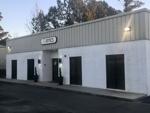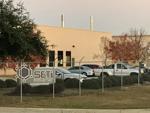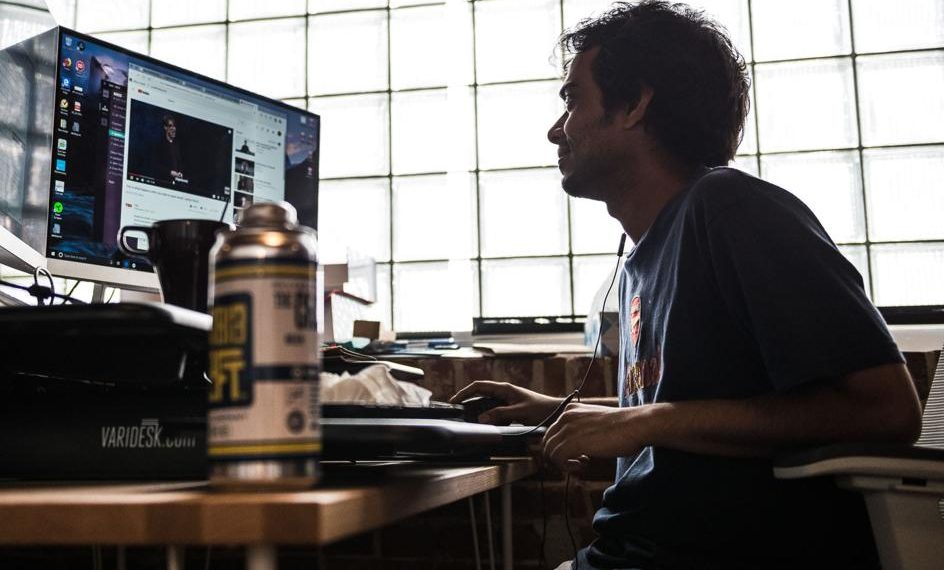COLUMBIA — When Mapquest co-founder Chris Heivly comes to a city seeking his help to attract more fast-growing technology companies, he spends the first 100 days meeting with the founders of area startups.
So far, he’s been in Columbia for more than 100 days and had about 80 meetings — only about 40 of those were with high-tech founders, highlighting the city’s shortage and the work that needs to be done if the Capital City hopes to become a technology-centered entrepreneurial destination.
To be sure, numerous groups and the University of South Carolina have worked on the issue. But in a city this size, which also boasts several colleges and a major university, Heivly estimates there should be closer to 5,500 of these budding founders in the Midlands.
“I’m meeting some wonderful people who run things like construction companies, and they’re entrepreneurs in the broadest sense,” Heivly said. “But what we’re interested in is creating more of an innovation economy.”
The city also has only had 12 venture capital first financings in the last five years versus 51 in Richmond, Va., 64 in Charleston, and 140 in Durham, N.C., according to data Hievly shared. And while Columbia companies have registered 481 utility patents over a 15-year period, that puts the city 122nd among the country’s 280 metro areas.
Heivly’s consulting is part of a larger effort by the city and counties to expand their economic development focus beyond just traditional manufacturing to include technology firms. For help spurring entrepreneurialism in this area, Richland County Economic Development sought out Heivly, who has spent the last 4½ years partnering with Boulder, Colo., based Techstars making a science out of building what they call “startup communities.”
Columbia is currently the only city Heivly is working with in this capacity, after county staff leaned on his connection to the town as a USC graduate to spur him out of semi-retirement.
Building up the Midlands knowledge economy has become an area of intense focus for Richland County, as it has found itself lagging behind other South Carolina metros in the last decade, during which the state has experienced immense economic growth.
Comparing jobs numbers for July, the most recent data available from the federal Bureau of Labor Statistics, to the same period a decade earlier, growth in the county was just 14.7 percent, compared to 17.8 percent in Greenville and 25.6 in Charleston.
Census data shows the state’s second-largest county also plunged in the ranks, going from the county with the seventh-highest income statewide in 2010 to 16th in 2019.
More technology-centric companies could combat those trends, as fast-growing startups in the tech sphere tend to create better-paying, longer-lasting jobs and drive innovation, all of which will help build the tax base and boost the economy.
Heivly has taken on similar efforts across the country and globally, including Fort Wayne, Ind.; Norfolk, Va.; Birmingham, Ala.; Louisville, Ky.; Buffalo, N.Y.; and Des Moines, Iowa, as well as Durham, N.C., where he resides.

A lot of government dollars and resources have been channeled toward this effort in Columbia, Heivly said.
What’s missing here compared with other cities is what he calls “a culture of entrepreneurship,” where anyone with an idea and a little bit of motivation can easily find others who work for or have founded startups gathering to share their experiences, resources and offer advice.
There are existing efforts, like weekly 1 Million Cups events, a gathering of middle-stage growth companies called GrowCo, activity at an incubator run by the University of South Carolina, and a group in the insurance sector called ITs Cola. More broad entrepreneurial programs are also run out of Benedict College, which has its own incubator; Columbia College; and Midlands Technical College, which currently provides mentoring to more than 100 people.
“We have little bits and pieces all over, but those pieces don’t conspire together to form something big,” Heivly said.
When he spoke with Columbia-based founders about how they got started, there was not one or two consistent answers.
“Inspiration was self-created and not because of an activity or event or even a local idol,” Heivly said. “I found a few very promising activities, but many, if not most, were not aware of these and certainly were not actively supporting them.”
In cities that have success growing their technology center through startups, everyone — from your neighbor to the person in your running group to those you play pickup basketball with — knows where to point someone with an idea for a company, Heivly said, because founders have banded together in those cities and are marketing their joint successes.
Columbia has had some wins, said Chad Hardaway, who helps run USC’s incubator and Office of Economic Engagement.

Housed in the incubator was TCube Solutions, an insurance technology service firm founded in 2007 by Sam McGuckin and sold to Capgemini a decade later; IMCS, a university-grown biotechnology firm founded in 2013 specializing in enzymes; and a set of three other companies, Cirtemo, Ometric and MagAssemble, that got their start in the university before selling their research and technologies to giants like Halliburton and Thorlabs in 2011 and 2019.
More recently companies like Van Robotics, with its educational robot, and Land Intelligence, a software that automates land development permitting and planning, have begun to gain traction.
Heivly agrees the incubator, founded in 1998, has been an asset. But he also believes there should be more than the roughly 40 companies it has been housing at a time.
He expects more haven’t come forward because those with ideas struggle to find a landing space.
“We don’t have a pipeline where we’re talking to about 100 to 200 new entrepreneurs in here. So, we need to figure out how to build that and we need to focus our time, our energy, our monies, our excitement less around optimizing the handful of companies we have and more about just literally opening up the top of the funnel,” Heivly said. “It’s got to be, yes, and …”
To spur community, Heivly has started with a weekly founder coffee meetup, asking each person to bring someone new every week. He’s recommending other events to build excitement and awareness in the coming months, as well as building off existing events held by groups like GrowCo.
He also wants to open a physical 15,000-square-foot shared office space focused only on high-tech and high-growth companies. By that he means someone who is building a product, usually software or hardware, that can be scaled and sold again and again to a multitude of customers.

Having high growth startups of various sizes clustered is important for inspiring the next generation of companies and makes it easier for existing companies to work together, sharing contacts and advice.
“Entrepreneurship is very aspirational,” Heivly said. “You’ve got to see that someone’s doing it; you got to be able to literally see it and feel it.”
“If you’ve ever woken up on a Friday morning not sure whether you’re going to be able to make payroll, and you have 20 people you convinced to follow you on this journey, those are dark days,” added Joe Queenan, who has himself founded and sold several startups around the country and is working with Heivly on this effort in Columbia.
It’s important to have somebody to talk to who has had the same experience, Queenan said, “and its not the guys getting direct deposit every other week.”
Greg Hilton, the owner of SOCO co-working spaces in the Vista and the BullStreet District, agrees, saying high-growth company needs are different from those of a traditional small business. His own spaces cater to remote workers, single-person companies and some early stage companies.
“Dynamic, vibrant ecosystems have more than one thing going on,” he said. “We can’t change incrementally; we have to change aggressively.”
Hilton, who has helped get many of the existing startup efforts off the ground says, with the arrival of Heivly and the county’s latest push, he feels there’s a lot more focused energy, rather than scattered efforts, on addressing the issue than in the past.

At the USC Incubator, Hardaway said the school will be shifting focus in the next couple years away from being landlords to providing more of the support services it currently offers, as well as workforce development efforts, largely around innovation in manufacturing.
Hardaway points to senior semester projects students have conducted, with big companies like IBM, Siemens and Nephron Pharmaceuticals as training grounds. In the past, TCube Solutions also utilized this student workforce, hiring many of them upon graduation.
USC also is making efforts to combine the entrepreneurial spirit it sees in its business school students with those on the technical side in the engineering and computing schools, through its Faber Entrepreneurship Center.
“One of the problems with business school students is that they don’t necessarily know how to make stuff,” Hardaway said. “They tend to be the ones to create the service-based startups, and not necessarily high tech, high growth. So, the perfect storm is when we see a business student who wants to be an entrepreneur pair with a technical student who actually can create a solution.”
And Hardaway highlighted the school’s Mentor SC program, in which it has 25 to 30 mentors — lawyers, accountants, sales people, and insurance technology executives — from the community that are spending their time meeting one-on-one with entrepreneurs.
Credit: Source link




















